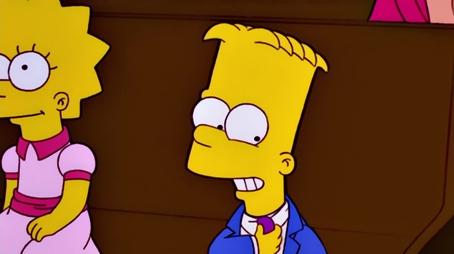
Sorry, we have not watched this yet.

Bart gets in trouble for joyriding in a police car, but feels confident he will be let off by Judge Snyder. However, Snyder goes on vacation before ruling his verdict and is replaced with a coldhearted judge named Constance Harm. She accuses Homer of being a negligent father and sentences him to be tethered to Bart. The two are against it at first but later start to bond. Marge however is unable to take anymore of it and slices the tether off of them both. Homer and Marge then go after Judge Harm only to end up sinking her houseboat. Eventually Bart decides to take punishment and is about to be sentenced to 5 year in juvenile hall, only though Judge Snyder returns and dismisses Harm.
Sorry, we have not watched this yet.